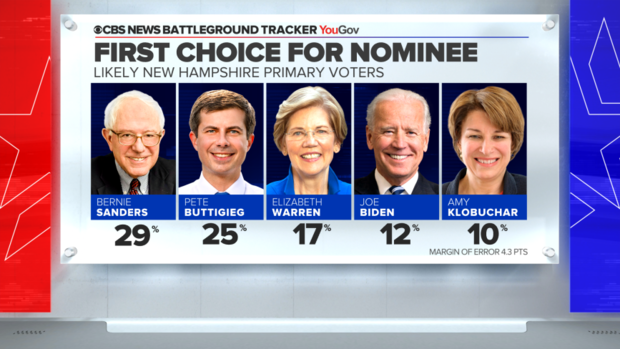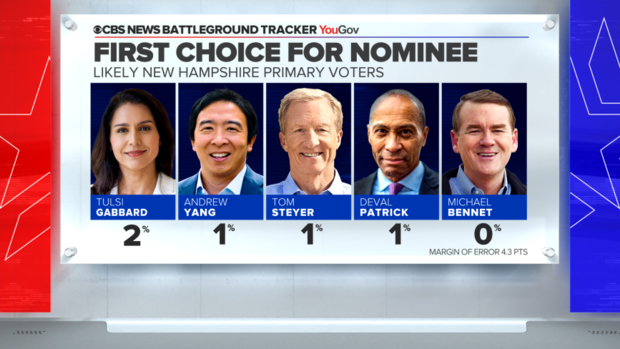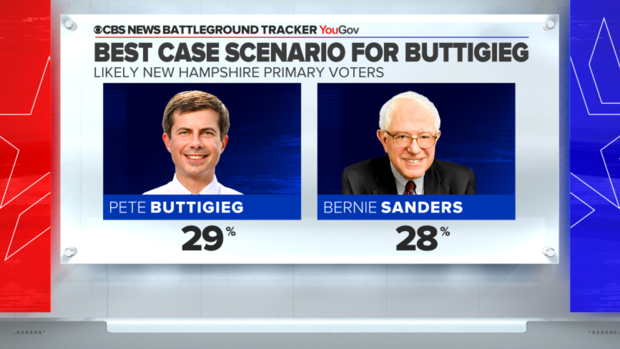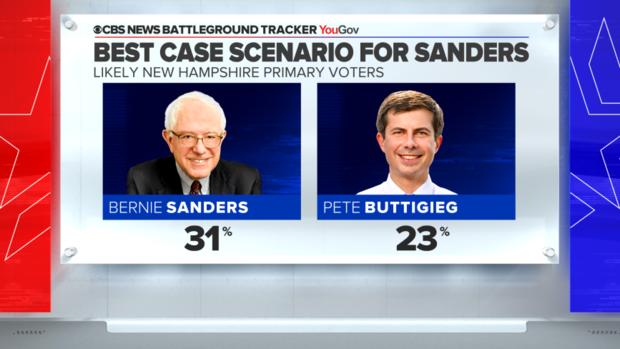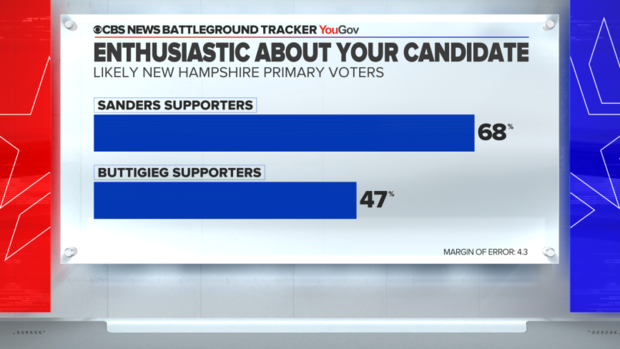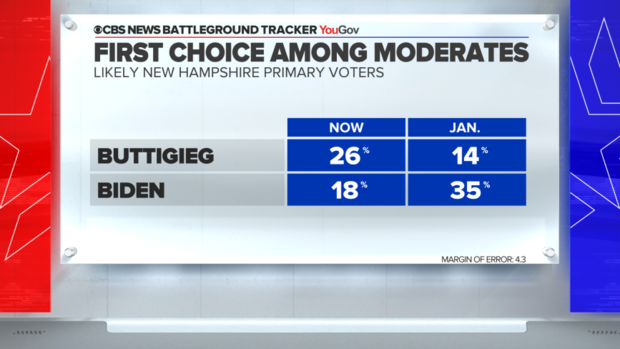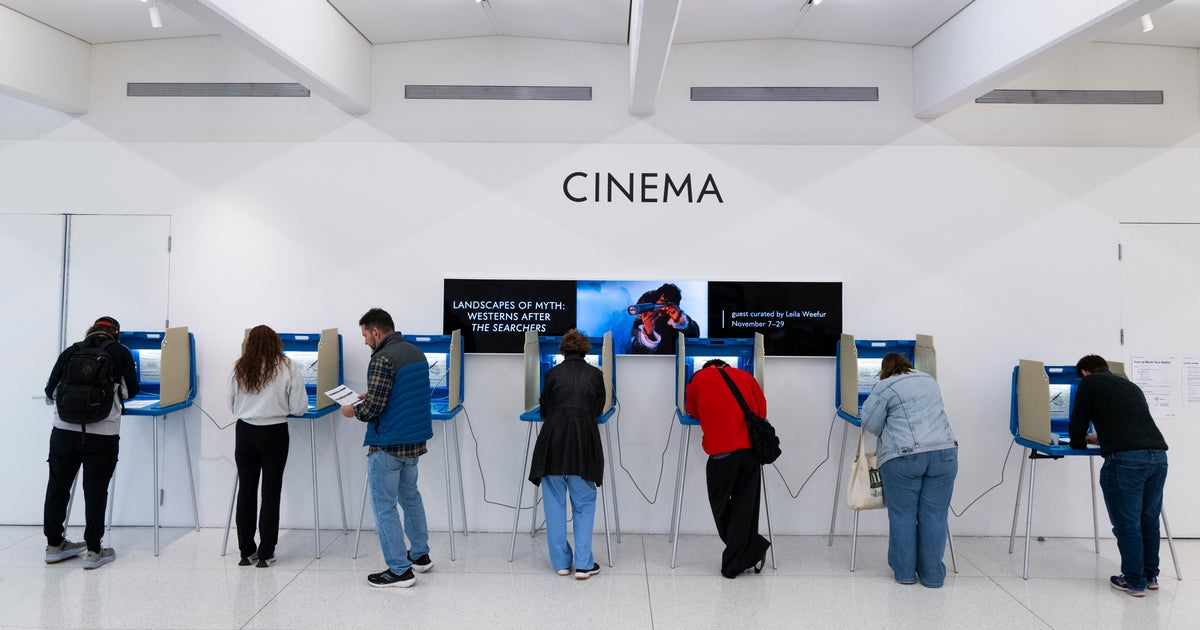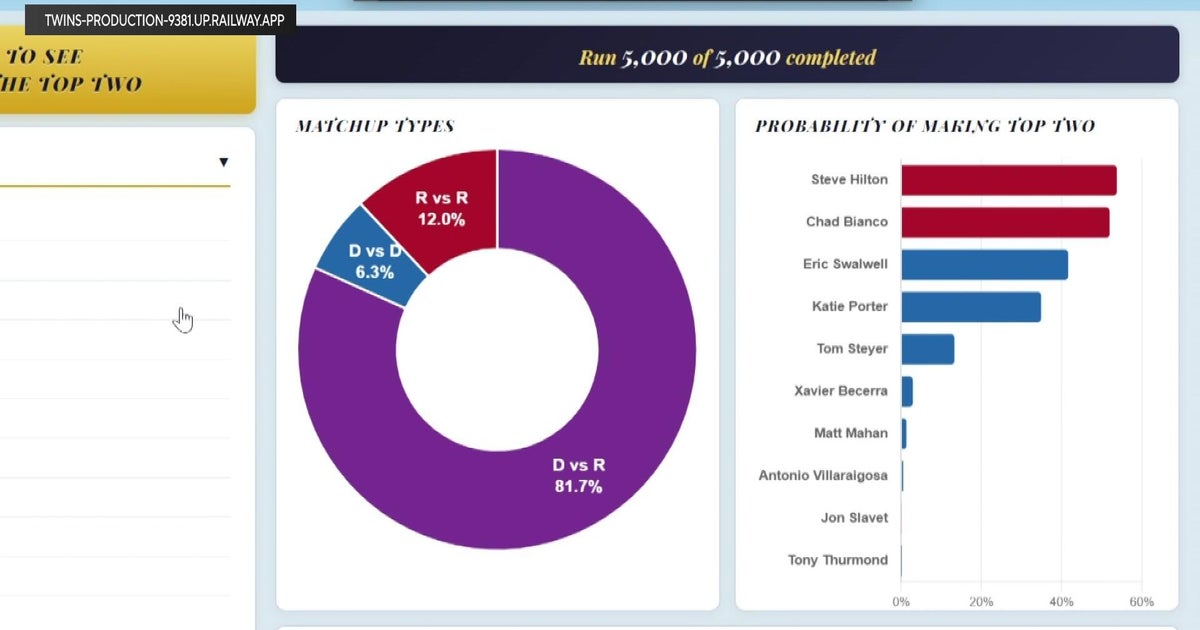CBS News Battleground Tracker poll: In New Hampshire, Sanders' support v. Buttigieg bounce
In New Hampshire, Bernie Sanders is trying to hold onto his lead against Pete Buttigieg, who has made gains coming off of the Iowa caucuses. Here, we present three of the possible scenarios that we might see Tuesday night — including different possible winners — that may illustrate the dynamics in this still-evolving race.
Only 39% of likely voters say they've definitely made up their minds, and only 59% are enthusiastic about their favored candidate. No matter which candidates draw the most attention, it does appear that Sanders and Buttigieg are both in position to get delegates.
Based on our latest CBS News Battleground Tracker poll, our baseline estimate of the contest has Sanders at 29% support among likely voters (up two points from January) while Buttigieg is at 25% — having gained 12 points since then. Many of Buttigieg's recent gains come at the expense of Joe Biden, who is now at 12%. Elizabeth Warren is in front of Biden with 17%, and Amy Klobuchar just behind him at 10%.
We also see a bit of what underlies a political "bounce": Buttigieg is now leading among moderate Democrats — Biden did before — while both the number of voters supporting and even considering Biden has dropped. One thing keeping Sanders' support steady is that his backers are more enthusiastic about him (68%) than the backers of other leading candidates are about them, and more than Buttigieg's are about Buttigieg (47%). The polling was mostly completed before Friday night's debate.
So how might Buttigieg win? Suppose he continues to persuade voters to back him — what observers might call "momentum" we pollsters would observe as voters giving a candidate renewed consideration. In one such scenario, let's consider what would happen if the New Hampshire voters who have Buttigieg as their second choice, but are not fully committed to their first choice, were to switch. If that happened, it would put Buttigieg over Sanders, and is one way Buttigieg could win.
At the same time, things could go the other way for Buttigieg, too: his supporters are less likely to have definitely decided on him than are Sanders'.
Our next scenario revolves around turnout, and advantages Sanders.
Sanders has the more enthusiastic backers. Suppose overall, voters who are enthusiastic about their candidates are much more likely to turn out than those who aren't, all else being equal (and voters do tell us that enthusiasm is related to their likelihood of voting). This would greatly help Sanders. In that turnout scenario, Sanders would win by a substantial margin, 31% to 23%.
Warren does as well as Buttigieg here among liberals, but she trails among moderates. She does well among those with college- and post-graduate degrees, but not nearly as well with non-college voters; they are much more for Sanders. She is not being as widely considered as Sanders or Buttigieg overall, so her fortunes here probably hinge heavily on the composition of the electorate.
More from the survey
A third say the events of Iowa have made them less confident in the Democrats' nominating process. And heading into New Hampshire, New Hampshire Democrats are no more confident today that their party will nominate someone who will beat President Trump than they were in November.
Michael Bloomberg is not on the ballot in New Hampshire but Democrats there have noticed him. Thirty-seven percent of Democratic likely voters say they would consider Bloomberg if he were on the ballot.
All told, in Iowa, turnout was close to 2016 levels but did not reach the records that some had expected. So we might reasonably expect that turnout — as well as persuasion and changing choice — are in play again here.
This CBS News survey is conducted by YouGov between February 5-8, 2020. A representative sample of 1,222 registered voters in New Hampshire was selected, including 848 self-identified Democrats, as well as independents who plan to vote in the Democratic primary this year. This sample was weighted according to gender, age, race, and education based upon voter registration lists and the U.S. Census Current Population Survey, as well as the 2016 presidential vote. The margin of error for the sample of likely voters is 4.3 points.
